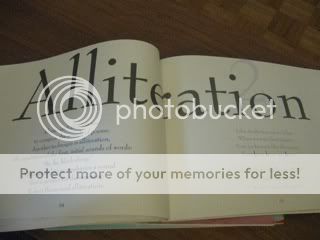Today, on day 3 of our 5 days of ..., we will look at an innovative, interesting approach to Language Arts.
Last year I discovered Michael Clay Thompson Language Arts Curriculum via the Well Trained Mind forum. Right away I took a liking to the approach and the material. And, of course, as a true curriculum junkie, fully happy with FLL as described in yesterday's post, I gave this new find a try right away. I went ahead and ordered the grammar, vocabulary and poetry textbook.
I have to say, I will most likely buy the next volume for next year.
If you have never heard about Michael Clay Thompson's Language Arts curriculum, here is a synopsis.
It is a 4 strands approach to Language Arts:
- Grammar: Island, Town and Voyage
- Vocabulary: Building Language and Cesar's English I and II
- Poetry: Music Hemisphere, Building Poems and a World of Poetry
- Writing: Sentence Island, Paragraph Town and Essay Voyage
The way the program works is that you cover each of these topics in a year, let's say 6 weeks for Grammar (followed by a practice book made up of 100 sentence for analysis at a one a day pace), 14 weeks/days for Poetry, 25 weeks/days for writing and 18weeks/days to vocabulary, as an example. These books are meant to be read to the students, and invite interaction. I love the fact that they incorporate classic authors, familiarizing my son with their names and what they were about such as Aristotle, Dickinson, Shakespeare and more.
Grammar itself is taught from a 4 level approach as well:
- Parts of Speech,
- Parts of the sentence
- Phrases
- Clauses
The program is divided into elementary levels and Middle and Secondary Levels, both of which divided into 3 levels. Each level in the series builds on the previous one, and goes into more depth and details. There is also great connection between the different strands of the curriculum, demonstrating the unity of the English language. That said, you could still start off at any level depending on where your child is at when you start. The first level starts at grade 3 or is appropriate for ages 8, 9, 10. It is meant for gifted kids as it takes a whole picture approach to language, and then goes into the details. However, many have found that it works too with non-gifted kids.
My oldest is very much a whole picture kind of boy and although He has enjoyed First Language Lessons, I figured it would be good for him to see Grammar from a whole picture view point. How it all fits together; that is what the Grammar series is all about.
Both boys have enjoyed me reading through the grammar book with them, and as we are still working on the accompanying practice books, they love analyzing the sentences.
When it comes to poetry I am very enthralled with what this curriculum it did for Zach. I have always wanted to teach him about poetry but was always falling short (besides the poems he memorized through FLL). Through Music Hemisphere, my son has come to love and get an appreciation and understanding of what poetry is about. Zach is an artist at heart, but it needs to be nurtured in him, and I found one way of doing this. He has really enjoyed learning what poetry is made: play of sounds, rhymes, alliterations, rhythms and imagery such as simile and metaphor.
So, as a whole I have appreciated using MCT (as it is often referred to in the homeschool community) in our Language Arts studies. It has helped Zach practice the concepts learned in FLL in the practice sentences of Island Practice and helped him see how all the different aspects of grammar work together. He has also helped my youngest recognize the different part of speech in sentences. Thanks to the vocabulary part of the curriculum, when we meet words in books or in everyday life I can help him figure out meaning by pointing out stems and that it has been a blessing to see the light bulb come on on many occasions. Now, also when we read picture books (good ones of course), I am able to point out the different aspects of poetry that are sometime present and again, his face will light up.
I think MCT is a great compliment to any Language Arts studies, and for some it might even be everything you need, as as you go up the level the depth and rigor intensify.
Tomorrow, we will be looking at History with Tapestry of Grace.








Comments